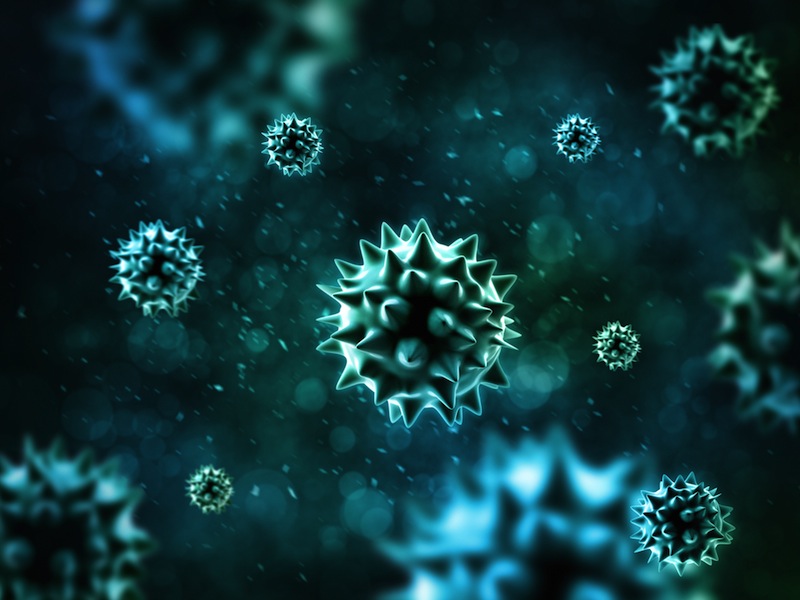Weight-Loss Surgery Changes Gut Bacteria

Get the world’s most fascinating discoveries delivered straight to your inbox.
You are now subscribed
Your newsletter sign-up was successful
Want to add more newsletters?

Delivered Daily
Daily Newsletter
Sign up for the latest discoveries, groundbreaking research and fascinating breakthroughs that impact you and the wider world direct to your inbox.

Once a week
Life's Little Mysteries
Feed your curiosity with an exclusive mystery every week, solved with science and delivered direct to your inbox before it's seen anywhere else.

Once a week
How It Works
Sign up to our free science & technology newsletter for your weekly fix of fascinating articles, quick quizzes, amazing images, and more

Delivered daily
Space.com Newsletter
Breaking space news, the latest updates on rocket launches, skywatching events and more!

Once a month
Watch This Space
Sign up to our monthly entertainment newsletter to keep up with all our coverage of the latest sci-fi and space movies, tv shows, games and books.

Once a week
Night Sky This Week
Discover this week's must-see night sky events, moon phases, and stunning astrophotos. Sign up for our skywatching newsletter and explore the universe with us!
Join the club
Get full access to premium articles, exclusive features and a growing list of member rewards.
Bariatric surgery may lead to long-term changes in people's gut bacteria that contribute to weight loss following the procedure, a new study from Sweden suggests.
Researchers analyzed the gut bacteria of 14 women nearly a decade after they underwent bariatric surgery, also known as weight-loss surgery. Half of the women had undergone a type of surgery called Roux-en-Y gastric bypass, in which doctors create a small pouch out of the top of the stomach and connect it directly to the small intestine. The other half underwent vertical banded gastroplasty, in which the stomach is made smaller with a band and staples.
Women who had undergone gastric bypass surgery had more significant differences in the composition of their gut bacteria than the women with severe obesity who had not had surgery. For example, bacteria belonging to the genuses Escherichia, Klebsiella and Pseudomonas were more abundant in women who had undergone gastric bypass than in those who had not had surgery.
The women who'd had vertical banded gastroplasty also showed differences in their gut bacteria compared to the women who had not had the surgery, but these differences were not statistically significant, meaning they could have been due to chance, the researchers said.
What's more, when the researchers transferred bacteria from the patients into the mice that were specially raised to not have their own gut bacteria, they found that the mice that were given bacteria from the patients who had undergone bariatric surgery had differences in metabolism and put on less fat compared to mice that received gut bacteria from obese patients. In fact, the mice that received bacteria from the gastric bypass patients put on 43 percent less body fat, and the mice that received bacteria from vertical banded gastroplasty patients put on 26 percent less body fat, compared with the mice that received bacteria from obese patients who had not had weight-loss surgery.
"Our results suggest that the gut microbiota may play a direct role in the reduction of adiposity [body fat] observed after bariatric surgery," the researchers wrote in the Aug. 4 issue of the journal Cell Metabolism. [5 Ways Gut Bacteria Affect Your Health]
The findings held even after the researchers took into account patients' body mass indexes (BMIs), suggesting that the changes in gut bacteria were related to the surgery itself rather than to the weight loss, the researchers said.
Get the world’s most fascinating discoveries delivered straight to your inbox.
The results agree with previous research that found changes in gut bacteria following bariatric surgery, but the new study is one of the first to look at whether those changes last over the long term, according to the researchers.
"Our findings are important in light of the growing epidemic of obesity and associated diseases," study researcher Fredrik Bäckhed, of the University of Gothenburg in Sweden, said in a statement.
The researchers hypothesized that, with future research, it may be possible to identify certain types of "good" bacteria, known as probiotics, that provide effects similar to those associated with bariatric surgery. "Since surgery always confers a risk, it is critical to identify nonsurgical strategies," Bäckhed said.
However, because the new study was small, the findings should be confirmed with future research. The study's small size may have limited the researchers' ability to detect certain differences between the groups, they said. In addition, the study did not compare the gut bacteria of the same women before and after surgery, which would have provided stronger evidence of a change in gut bacteria.
Follow Rachael Rettner @RachaelRettner. Follow Live Science @livescience, Facebook& Google+. Original article on Live Science.

Rachael is a Live Science contributor, and was a former channel editor and senior writer for Live Science between 2010 and 2022. She has a master's degree in journalism from New York University's Science, Health and Environmental Reporting Program. She also holds a B.S. in molecular biology and an M.S. in biology from the University of California, San Diego. Her work has appeared in Scienceline, The Washington Post and Scientific American.
 Live Science Plus
Live Science Plus










